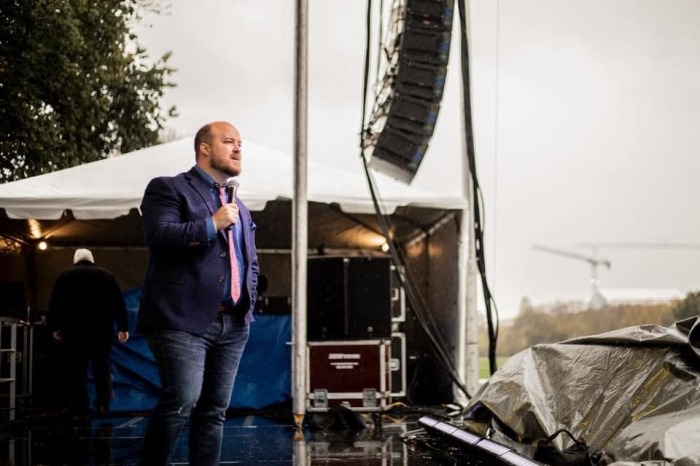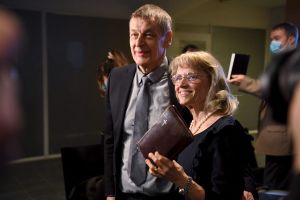Study suggests what makes prophesies, 'voice of God' unpredictable

Before the 2020 presidential election, several evangelical self-styled prophets like Jeremiah Johnson predicted a win for former President Donald Trump after hearing what they thought was the voice of God.
After the real estate mogul’s stunning defeat in November, Johnson apologized to believers for whom he might have caused to doubt the voice of God because of his failed prophesy while assuring them that God still speaks and is “not a liar.”
“I was wrong, I am deeply sorry, and I ask for your forgiveness,” he wrote. “I specifically want to apologize to any believer in whom I have now caused potential doubt concerning the voice of God and His ability to speak to His people. As a human being, I missed what God was saying; however, rest assured, God Himself is NOT a liar and His written Word should always be the foundation and source of our lives as Christians.”
Researchers, in a new international study of religious traditions published Monday in the journal Proceedings of the National Academy of Sciences, have now identified porosity and absorption as attributes that make individuals more likely to report spiritual encounters like hearing the voice of God, or other gods and spirits, suggesting why what some believe to be prophesies can be so unpredictable.
“Hearing the voice of God, feeling the presence of the dead, being possessed by a demonic spirit—such events are among the most remarkable human sensory experiences. They change lives and in turn shape history,” researchers wrote in the study, titled, Sensing the presence of gods and spirits across cultures and faiths.
“We argue that experiences of spiritual presence are facilitated by cultural models that represent the mind as ‘porous,’ or permeable to the world, and by an immersive orientation toward inner life that allows a person to become ‘absorbed’ in experiences.”
Porosity, according to lead researcher Stanford University anthropologist Tanya Luhrmann and her team, refers to ideas about how a person might receive thoughts, emotions, or knowledge directly from outside sources such as through divine inspiration, divination, telepathy, or clairvoyance.
It also pertains to ideas about how thoughts and feelings might have a direct causal impact on the world such as through witchcraft, healing energy, or shamanic powers.
Luhrmann and her team examined more than 2,000 participants from many different religious traditions in the United States, Ghana, Thailand, China and Vanuatu through data from four separate studies.
The term absorption in the study was used to refer to “an individual’s personal tendency to be engrossed in sensory or imagined events.”
“People with a greater capacity for absorption tend to ‘lose themselves’ in their sensory experiences and are capable of conjuring vivid imagined events. For example, they might get so caught up in music that they do not notice anything else, or they might feel that they experience the world the way they did as a child,” the researchers explained. “In the psychological literature, absorption is commonly considered to be a personality trait, although it may be sensitive to experience or training.”
Absorption, among U.S. adults, has been associated with an orientation toward fantasy and artistic pursuits, intense mystical experiences in response to psychedelics or placebo brain stimulation, and strong feelings of presence and transcendence when confronted with natural beauty, virtual reality, or music the researchers explained.
“Our work in an American charismatic Christian church found that congregants who reported more vivid experiences (e.g., that they experienced God in dialogue or heard God’s voice audibly) tended to score higher on measures of absorption,” they said.
These two attributes, researchers argued, played “distinct roles in determining which people, in which cultural settings, were most likely to report vivid sensory experiences of what they took to be gods and spirits.”
And even among cultural groups, like charismatic evangelicals, for example, some people report experiencing such events while others do not because of the varying degrees of the attributes they share.
“Ethnographic work suggests that societies differ in the degree to which minds are represented as porous and that, within these societies, individuals differ in the degree to which they accept such models of mind,” researchers wrote.
Researchers found that participants in relatively more secular settings in the four studies combined, such as in the United States and urban China, reported fewer spiritual presence events, while participants in less secular settings like Ghana and Vanuatu, along with charismatic evangelical Christians in all countries reported more.
“We’re now starting to think about ways that individuals could shift their mindsets and what ramifications that might have for their spiritual lives,” postdoctoral fellow Kara Weisman, a co-first author on the paper said in a release from Stanford.
“Porosity is a social-cultural construct, and if you want to have a different cognitive model, you might join a community of people who have that. Absorption is more individual, so you might have individual practices, like meditation, that might create a shift,” she added.




























